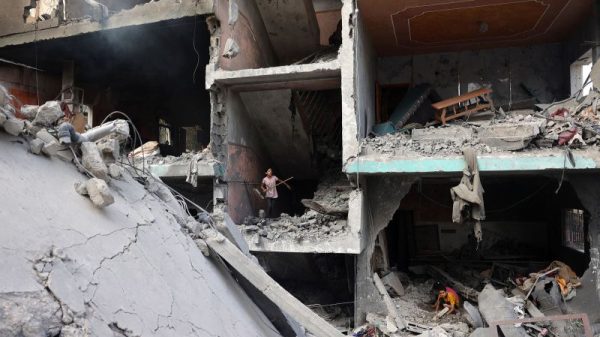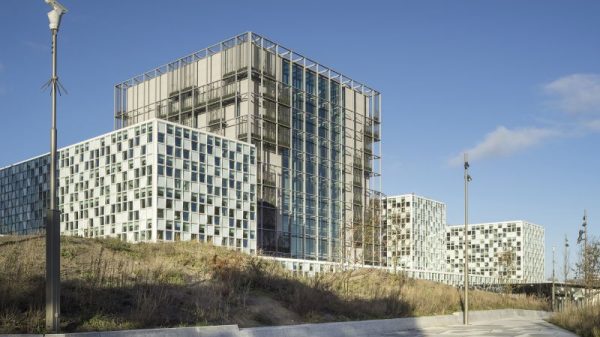The weather conditions that fueled record-shattering wildfires in eastern Canada earlier this summer – and sent plumes of hazardous air into the US – were made more likely and more intense by the climate crisis, according to a new report published Tuesday.
Scientists from the World Weather Attribution initiative – which calculates the role of climate change in extreme weather events – found human-caused climate change more than doubled the likelihood of hot, dry and windy conditions that drove the Quebec fires between May and July, and made this fire-prone weather at least 20% more intense.
The severity of Quebec’s fire season up to the end of July was also made 50% more intense by climate change, according to the report.
Climate change’s impact may be much greater than the study’s figures show, said Friederike Otto, co-founder of WWA and senior lecturer at the Grantham Institute in the UK, who added that the report had used the most conservative estimates.
Wildfires are complex to study because of the tangle of factors that influence them, but scientists say climate change, driven by the burning of fossil fuels, is loading the dice in favor of more devastating fires.
“It’s becoming evident that the dry and warm conditions conducive to wildfires are becoming more common and more intense around the world as a result of climate change,” said Clair Barnes, a research associate at the Grantham Institute and a report author.
Canada has experienced an unprecedented fire season this year, amid hot and dry conditions. May to June was the warmest such two-month period in Canada since records began in 1940, breaking the previous record by a substantial margin – 0.8 degrees Celsius (1.4 Fahrenheit).
More than 15 million hectares (over 37 million acres) across the country have been scorched – an area about the size of Illinois. The fires have killed at least 17 people and forced the evacuations of more than 150,000.
Quebec has been particularly affected, with the most area burned of any Canadian province. Wildfires have devastated 5.2 million hectares (12.8 million acres) there so far, about 26 times the average amount burned by late August.
The fires have also caused dangerous levels of air pollution in Canada and across swaths of the US, leading to school closures in both countries and a spike in asthma-related hospital visits. Smoke from the fires even made it to Western Europe.
It is by far the worst wildfire season Canada has ever experienced, and there are still more than two months left to go.
To understand the role of climate change in the fires, the WWA scientists looked at “fire weather” – including high temperatures, strong winds and dry conditions, all of which help fires ignite, spread and intensify.
The scientists used data from the Fire Weather Index – a measure of fire danger – to gauge the persistence of extreme fire conditions as well as the severity of the fire season overall. They then used climate models to understand the role climate change played.
They concluded that a wildfire season as severe as the one Quebec experienced up to the end of July was at least seven times more likely to occur because of climate change, and that human-induced warming made Quebec’s total fire weather season at least 50% more intense.
Climate change also made the peak fire weather in Quebec during the same period at least twice as likely and 20% more intense, according to the report.
While Quebec’s fires were unprecedented, the report authors wrote, “they are no longer extremely unusual.”
In today’s climate, which is around 1.2 degrees Celsius warmer than preindustrial times, similar weather conditions can be expected once every 25 years, the report found.
Around 1,000 fires continue to rage across Canada, with 200 of them burning in the Northwest Territories, where thousands of people were evacuated Friday from the capital Yellowknife. About 35,000 people are under evacuation orders in British Columbia.
Kira Hoffman, a fire ecologist at the University of British Columbia and the Bulkley Valley Research Centre, who was not involved in the report, said there are many factors that contribute to extreme wildfire seasons, including logging, large-scale clearouts and abandoning Indigenous fire stewardship techniques.
One of the major concerns with increasingly intense fire behavior is the impact on wildfire management, said Michael Flannigan, BC research chair for Predictive Services, Emergency Management and Fire Science at Thompson Rivers University.
“Until we stop burning fossil fuels,” said Otto in a statement, “the number of wildfires will continue to increase, burning larger areas for longer periods of time.”







































